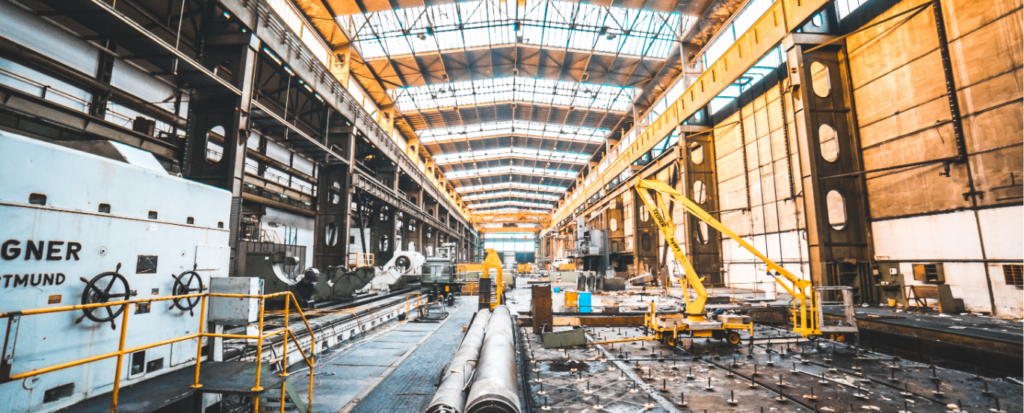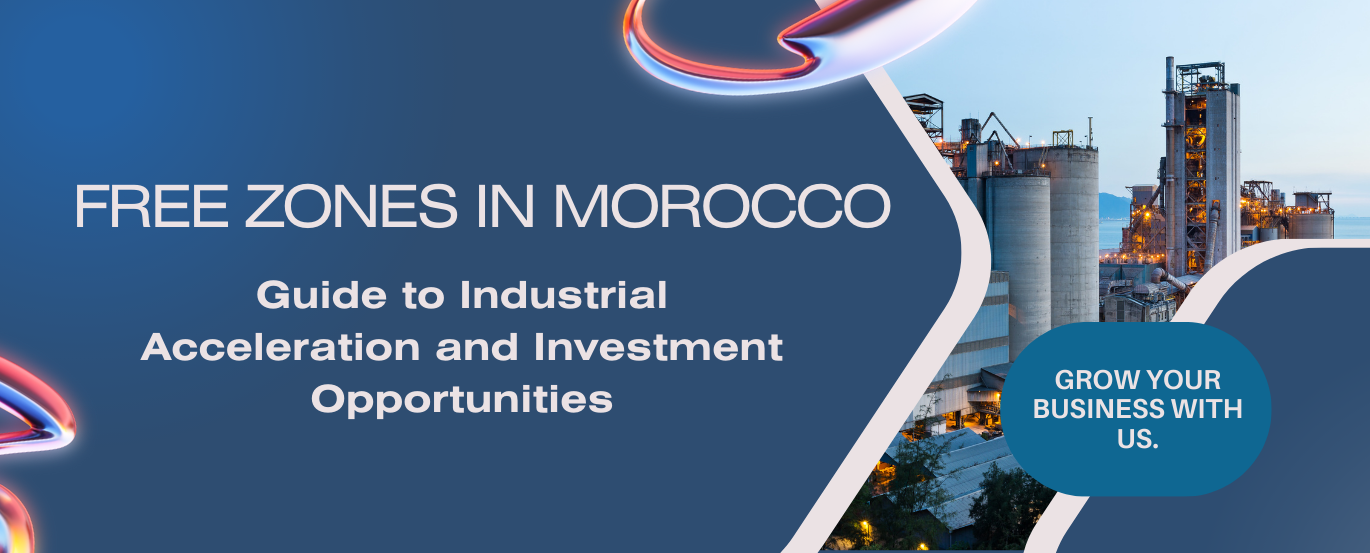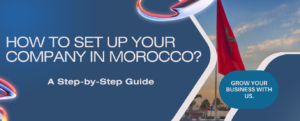Explore how Free Zones in Morocco have transformed into Industrial Acceleration Zones, offering unmatched tax benefits, strategic locations, and comprehensive support services to attract foreign investors and boost export-driven businesses in 2025.
Table of Contents
Introduction to Free Zones in Morocco
Over the years, Free Zones in Morocco have transformed into dynamic hubs for foreign investment, now known as Industrial Acceleration Zones (ZAI). These zones play a critical role in positioning Morocco as a regional and global economic player by offering businesses unparalleled tax advantages, access to top-tier infrastructure, and the ability to easily export products worldwide.
Originally called Free Trade Zones, these areas were designed to attract export-focused businesses. Today, with the rebranding to Industrial Acceleration Zones, the focus has broadened. Morocco aims to not only bring in global investors but also to strengthen its manufacturing and tech industries, creating a fertile ground for businesses to grow and thrive.
With Morocco’s strategic location at the crossroads of Africa, Europe, and the Middle East, Free Zones have become a key component of the country’s economic strategy, providing a platform for industrial growth, job creation, and competitive export markets.
Key Benefits of Morocco’s Free Zones
Free Zones in Morocco offer a variety of advantages designed to attract foreign investment and promote economic growth. Here are the key benefits for companies operating in these zones.
Tax Advantages for Companies in Free Zones
One of the biggest draws for businesses in Morocco’s Free Zones is the tax incentives. Companies benefit from significant reductions on corporate tax rates:
- 5-year tax exemption: For the first five years, companies are exempt from paying corporate income tax (IS), allowing businesses to reinvest their profits and grow.
- Reduced 15% corporate tax: After the initial exemption period, the corporate tax is set at just 15%, well below the standard rate. This makes it highly attractive for businesses looking to establish a long-term presence in Morocco.
- Customs and VAT exemptions: Companies in Free Zones also enjoy exemptions on import duties and VAT on goods used for production, which reduces operational costs and maximizes profitability for export-focused industries.
Let Afrigate Partners help you navigate every aspect of setting up your company in Morocco. We streamline the process, saving you time and money, while ensuring everything runs smoothly from start to finish.
Flexibility to Access Local Markets for Export-Based Businesses
While Free Zones in Morocco are primarily designed to support export-driven industries, there’s also flexibility for companies to sell their products locally. Since 2018, businesses operating in Free Zones have been allowed to sell up to 15% of their products in the local Moroccan market based on the previous year’s export revenue.
This change offers companies a unique advantage:
- Test local markets: Export-focused companies can explore domestic demand without fully committing to the local market.
- Boost revenue: The ability to sell domestically opens up additional revenue streams, making the Free Zones even more attractive for businesses that want to diversify their sales channels.

Comprehensive Support Services for Investors
Beyond tax and market access advantages, Free Zones in Morocco provide investors with comprehensive support services to streamline operations and help businesses thrive. These zones are equipped with state-of-the-art infrastructure and a range of services tailored to the needs of international companies:
- Turnkey facilities: Ready-to-use industrial buildings and office spaces reduce setup time for businesses.
- Administrative assistance: Investors benefit from a single-window system, where they can handle key administrative tasks—such as licensing, customs clearance, and labor issues—efficiently.
- Logistical support: Many Free Zones are located near major ports, airports, and highways, providing easy access to both global and regional markets.
- Business services: From recruitment support to security and maintenance services, companies are well-supported throughout their operations.
Top Free Zones in Morocco
Free Zones in Morocco are strategically located hubs that cater to a variety of industries, each designed to boost the country’s export potential and attract foreign investment. Here’s a closer look at the key Free Zones in Morocco that are leading industrial revolution.
Casablanca – Midparc
- Focus: Aerospace, defense, electronics
- Home to global leaders in aircraft manufacturing, defense systems, and electronic components
- Located near Mohammed V International Airport, providing seamless access to Africa, Europe, and the Middle East
- Plays a key role in Morocco’s aerospace supply chain
Kenitra – Atlantic Free Zone (AFZ)
- Focus: Automotive and electronics
- Hosts multinational corporations like Renault and PSA
- Positioned between Rabat and Casablanca, offering excellent connectivity through highways, ports, and railways
- A diverse industrial base supporting the automotive and electronics sectors
Rabat – Technopolis
- Focus: Tech firms, startups, research & development
- Offers cutting-edge facilities for IT, telecommunications, and innovation-focused businesses
- Access to a highly skilled, cost-effective labor force from Rabat’s universities and research institutions
- Ideal for scaling tech companies and startups with ready-to-use office spaces and financing options
Oujda – Cleantech Park
- Focus: Green technology and sustainable industries
- Specializes in renewable energy, energy efficiency, and environmental technologies
- Positioned close to the Algerian border and 120 km from the port of Nador, connecting Africa, Europe, and the Maghreb
- A hub for companies looking to innovate in green technologies and sustainability
Tangier – Tanger Free Zone
- Focus: Diverse industries including textiles, automotive, logistics, and manufacturing
- Strategic location near the Strait of Gibraltar, making it a prime export hub for European markets
- Well-developed transport infrastructure with ports, highways, and an international airport
- A generalist zone catering to various industries, providing a wide range of business opportunities
Let Afrigate Partners help you navigate every aspect of setting up your company in Morocco. We streamline the process, saving you time and money, while ensuring everything runs smoothly from start to finish.
Choosing the Right Free Zone for Your Business in Morocco
When it comes to expanding or launching a business in Free Zones in Morocco, choosing the right zone is crucial to maximizing your success. Each zone is designed to cater to specific industries, and aligning your business with the most suitable environment can make all the difference. Here’s how to choose the best Free Zone for your business.
Aligning Your Industry with the Right Free Zone
The first step is to ensure that your business aligns with the industry focus of the Free Zone you’re considering. Each of Morocco’s Free Zones specializes in particular sectors, offering tailored infrastructure and expertise:
- Tech and Aerospace: If you’re in the high-tech or aerospace sector, Midparc near Casablanca is your best bet. It’s a hub for companies involved in defense, electronics, and aviation, and offers specialized facilities and workforce training.
- Automotive and Electronics: Companies in automotive manufacturing and electronics will find a perfect fit in the Atlantic Free Zone. This zone is home to key players in these industries, offering a strong ecosystem for growth and supply chain support.
- Green Tech: For businesses focused on sustainability and clean technology, Oujda Cleantech Park provides the right environment. The park’s focus on renewable energy and environmental technologies creates a unique platform for companies driving green innovation.
- Tech Startups and R&D: If your business is focused on tech development, innovation, or research, Technopolis near Rabat is ideal. It’s Morocco’s answer to Silicon Valley, designed to foster innovation and provide access to tech talent at competitive costs.
- General Manufacturing and Logistics: For businesses that need diverse industrial support, Tanger Free Zone offers a more generalist approach. With its proximity to Europe and access to both air and sea transport, it’s perfect for companies in textiles, logistics, and general manufacturing.
How to Establish Your Business in a Moroccan Free Zone
Setting up your business in one of the Free Zones in Morocco is designed to be straightforward and efficient, thanks to the country’s business-friendly environment. However, like anywhere, there are legal requirements and administrative steps you’ll need to navigate. Here’s a breakdown of the process to get your business up and running smoothly.
Legal Requirements and Company Registration
Before you can operate in one of the Free Zones in Morocco, you’ll need to meet several legal and registration requirements. Here’s what you’ll need to do:
- Choose your legal structure: Decide whether your business will operate as a Société Anonyme (SA), Société à Responsabilité Limitée (SARL), or another legal form based on your business size and goals.
- Obtain a Negative Certificate: This document ensures your company name is unique and hasn’t been registered by another entity. It’s an essential first step for any company looking to operate legally in Morocco.
- Submit business registration documents: Once the company name is approved, you’ll need to submit the following documents to the Regional Investment Center (CRI) or OMPIC:
- Statutes of the company (detailing company structure and operations)
- Proof of identity of shareholders and directors
- Business address in the Free Zone (lease or ownership documents)
- Proof of paid-up capital (if required for your legal structure)
- Sign a Free Zone contract: After company registration, you’ll need to sign a lease or rental agreement for your business premises within the Free Zone.
Leveraging the Single-Window System for Smooth Administrative Processes
Morocco’s Free Zones provide a streamlined single-window system (Guichet Unique) designed to simplify the administrative process for investors. This is a one-stop-shop where you can complete all necessary formalities under one roof, saving time and reducing bureaucratic hurdles. Here’s how it helps:
Legal and financial support: Many Free Zones offer on-site support, including legal, financial, and administrative consultants, to help you navigate the setup process and ensure compliance with local laws.
Centralized services: Instead of dealing with multiple agencies, the single-window system allows you to process everything from company registration to customs, social security affiliation, and labor permits through one point of contact.
Faster processing: With all relevant government departments represented in one place, the time needed to establish your business is significantly reduced. You can complete essential steps, like obtaining the Negative Certificate and business registration, in a matter of days rather than weeks.
Let Afrigate Partners help you navigate every aspect of setting up your company in Morocco. We streamline the process, saving you time and money, while ensuring everything runs smoothly from start to finish.
Learn more about Tanger Free Zone Here





